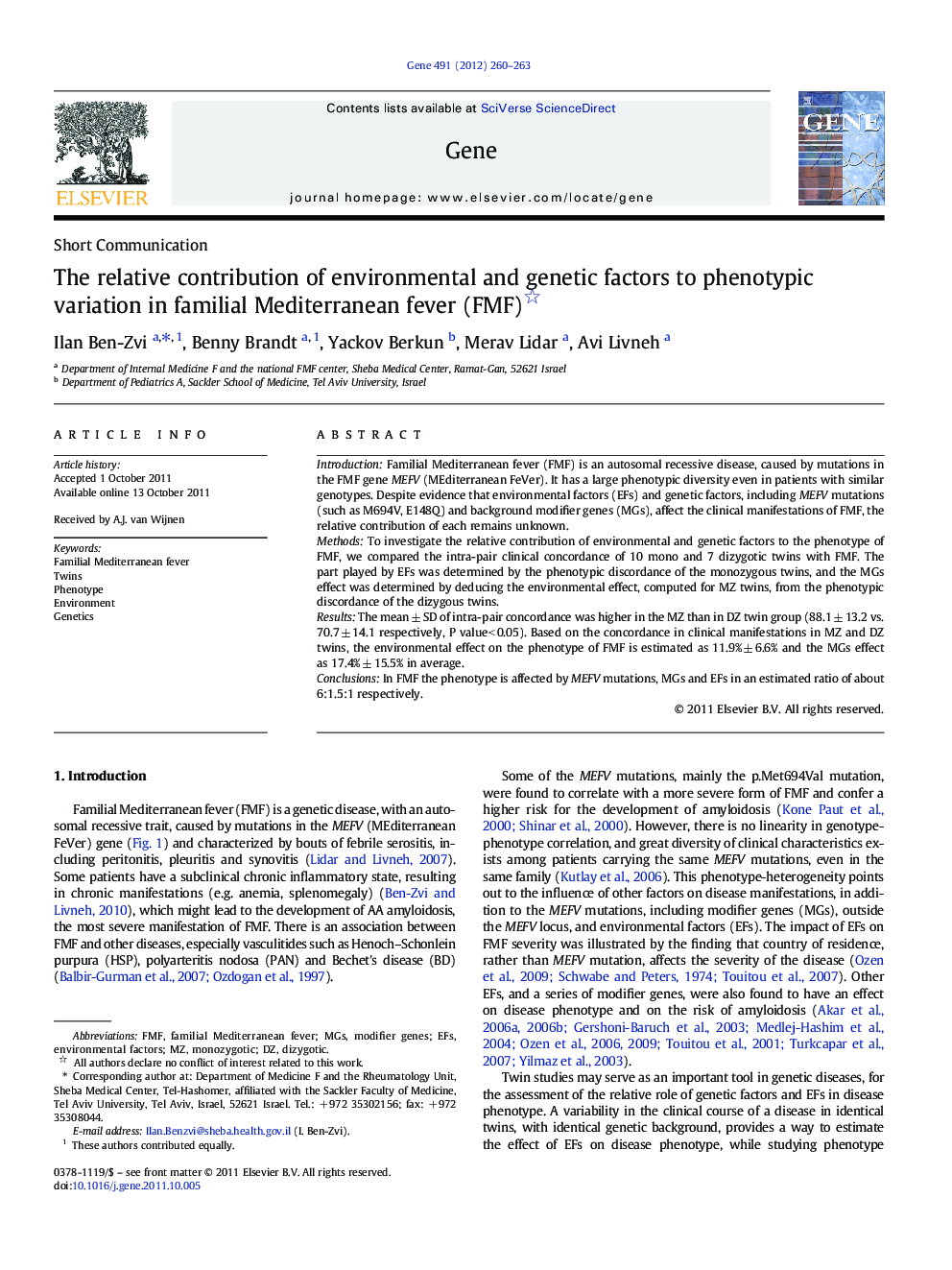| Article ID | Journal | Published Year | Pages | File Type |
|---|---|---|---|---|
| 2818207 | Gene | 2012 | 4 Pages |
IntroductionFamilial Mediterranean fever (FMF) is an autosomal recessive disease, caused by mutations in the FMF gene MEFV (MEditerranean FeVer). It has a large phenotypic diversity even in patients with similar genotypes. Despite evidence that environmental factors (EFs) and genetic factors, including MEFV mutations (such as M694V, E148Q) and background modifier genes (MGs), affect the clinical manifestations of FMF, the relative contribution of each remains unknown.MethodsTo investigate the relative contribution of environmental and genetic factors to the phenotype of FMF, we compared the intra-pair clinical concordance of 10 mono and 7 dizygotic twins with FMF. The part played by EFs was determined by the phenotypic discordance of the monozygous twins, and the MGs effect was determined by deducing the environmental effect, computed for MZ twins, from the phenotypic discordance of the dizygous twins.ResultsThe mean ± SD of intra-pair concordance was higher in the MZ than in DZ twin group (88.1 ± 13.2 vs. 70.7 ± 14.1 respectively, P value < 0.05). Based on the concordance in clinical manifestations in MZ and DZ twins, the environmental effect on the phenotype of FMF is estimated as 11.9% ± 6.6% and the MGs effect as 17.4% ± 15.5% in average.ConclusionsIn FMF the phenotype is affected by MEFV mutations, MGs and EFs in an estimated ratio of about 6:1.5:1 respectively.
► This study determines the relative contribution of EFs and MGs in FMF. ► The effect of EFs and MGs on FMF phenotype is determined using MZ and DZ twins. ► The effect of EFs on the phenotype of FMF is estimated as 11.9% ± 6.6%. ► The effect of MGs is estimated as 17.4% ± 15.5%. ► The relative effect of MEFV, MGs and EFs on FMF phenotype is 6:1.5:1 respectively.
